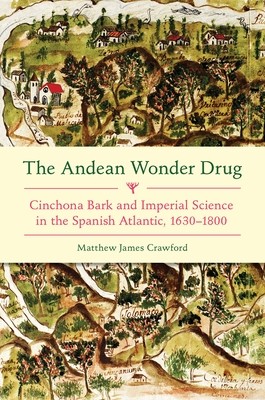
- We will send in 10–14 business days.
- Author: Matthew James Crawford
- Publisher: University of Pittsburgh Press
- ISBN-10: 0822944529
- ISBN-13: 9780822944522
- Format: 15.8 x 23.4 x 2.3 cm, kieti viršeliai
- Language: English
- SAVE -10% with code: EXTRA
Reviews
Description
In the eighteenth century, malaria was a prevalent and deadly disease, and the only effective treatment was found in the Andean forests of Spanish America: a medicinal bark harvested from cinchona trees that would later give rise to the antimalarial drug quinine. In 1751, the Spanish Crown asserted control over the production and distribution of this medicament by establishing a royal reserve of "fever trees" in Quito. Through this pilot project, the Crown pursued a new vision of imperialism informed by science and invigorated through commerce. But ultimately this project failed, much like the broader imperial reforms that it represented. Drawing on extensive archival research, Matthew Crawford explains why, showing how indigenous healers, laborers, merchants, colonial officials, and creole elites contested European science and thwarted imperial reform by asserting their authority to speak for the natural world. The Andean Wonder Drug uses the story of cinchona bark to demonstrate how the imperial politics of knowledge in the Spanish Atlantic ultimately undermined efforts to transform European science into a tool of empire.
EXTRA 10 % discount with code: EXTRA
The promotion ends in 22d.18:20:19
The discount code is valid when purchasing from 10 €. Discounts do not stack.
- Author: Matthew James Crawford
- Publisher: University of Pittsburgh Press
- ISBN-10: 0822944529
- ISBN-13: 9780822944522
- Format: 15.8 x 23.4 x 2.3 cm, kieti viršeliai
- Language: English English
In the eighteenth century, malaria was a prevalent and deadly disease, and the only effective treatment was found in the Andean forests of Spanish America: a medicinal bark harvested from cinchona trees that would later give rise to the antimalarial drug quinine. In 1751, the Spanish Crown asserted control over the production and distribution of this medicament by establishing a royal reserve of "fever trees" in Quito. Through this pilot project, the Crown pursued a new vision of imperialism informed by science and invigorated through commerce. But ultimately this project failed, much like the broader imperial reforms that it represented. Drawing on extensive archival research, Matthew Crawford explains why, showing how indigenous healers, laborers, merchants, colonial officials, and creole elites contested European science and thwarted imperial reform by asserting their authority to speak for the natural world. The Andean Wonder Drug uses the story of cinchona bark to demonstrate how the imperial politics of knowledge in the Spanish Atlantic ultimately undermined efforts to transform European science into a tool of empire.


Reviews